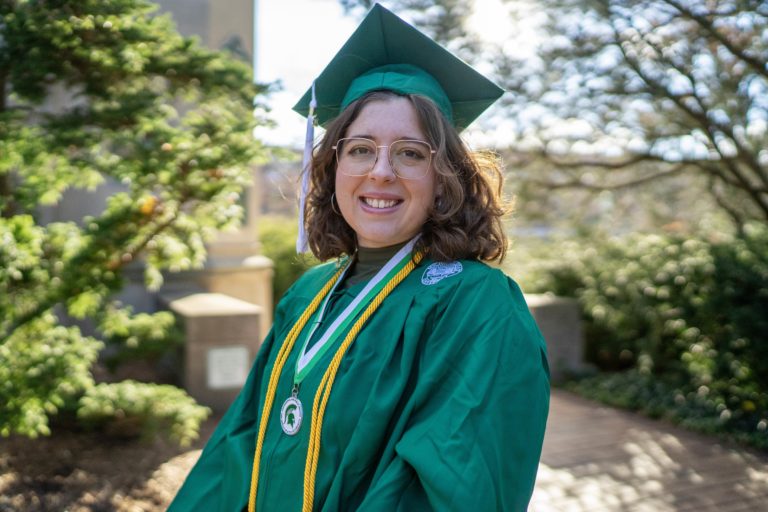While most Michigan-based legal practitioners lack adequate training in Tribal laws, Taylor Elyse Mills, a sixth-year doctoral candidate in Philosophy at Michigan State University and graduate of MSU’s College of Law, sought to do something about this significant gap in our state’s legal education and is now being recognized for her work.
In partnership with the Little Traverse Bay Bands of Odawa Indians (LTBB) and the Tribal State Federal Judicial Forum in Michigan, Mills compiled a Tribal Law Handbook, titled Anishinaabeg Law: An Introduction to Tribal Law for Michigan Legal Practitioners, to serve as a resource to prepare Michigan legal practitioners for work with Tribes and to demarginalize Tribal communities in legal education.
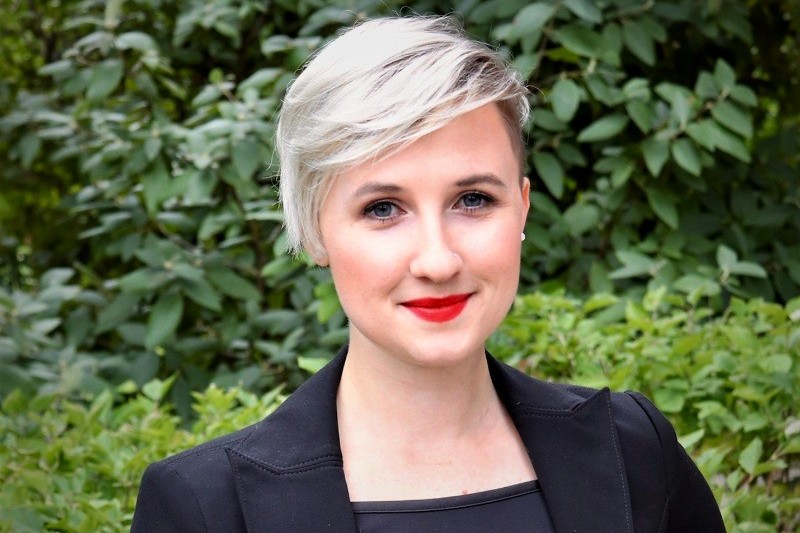
The Michigan Supreme Court will soon publish the handbook and several Michigan-based legal education institutions have expressed interest in using the handbook in their curricula.
Mills recently was awarded the Community-Engaged Teaching and Learning Award for this work. The award was presented by MSU’s University Outreach and Engagement and the MSU Graduate School at MSU’s 2024 Outreach and Engagement Awards Ceremony on March 21.
“I have struggled to be understood and even selected for certain professional opportunities because my nontraditional dual degree and social justice track record can look unusual. I have often had to justify the work that I do,” Mills said. “This project was a rare and perfect opportunity to bring together all of my areas of experience and passion, and rather than having to justify the work, my work was well received from folks seated at the highest levels of our profession. It is an honor to be recognized.”
“This project was a rare and perfect opportunity to bring together all of my areas of experience and passion, and rather than having to justify the work, my work was well received from folks seated at the highest levels of our profession.”
Mills began working with the LTBB as a law student clerk for the Tribe’s court and general counsel and as a doctoral student through MSU’s Engaged Philosophy Internship Program (EPIP). This work connected her with the Tribe’s Chief Judge at the time, Judge Allie Greenleaf Maldonado, who is now serving on the Michigan Court of Appeals as the first Native person on that bench. Judge Maldonado’s role on the Michigan Tribal State Federal Judicial Forum’s Education Committee prompted her to think of ways to help law faculty integrate Tribal law into their classrooms. She wanted to compile a list of Michigan-based tribal court opinions to pair with a first-year law school standard curriculum.
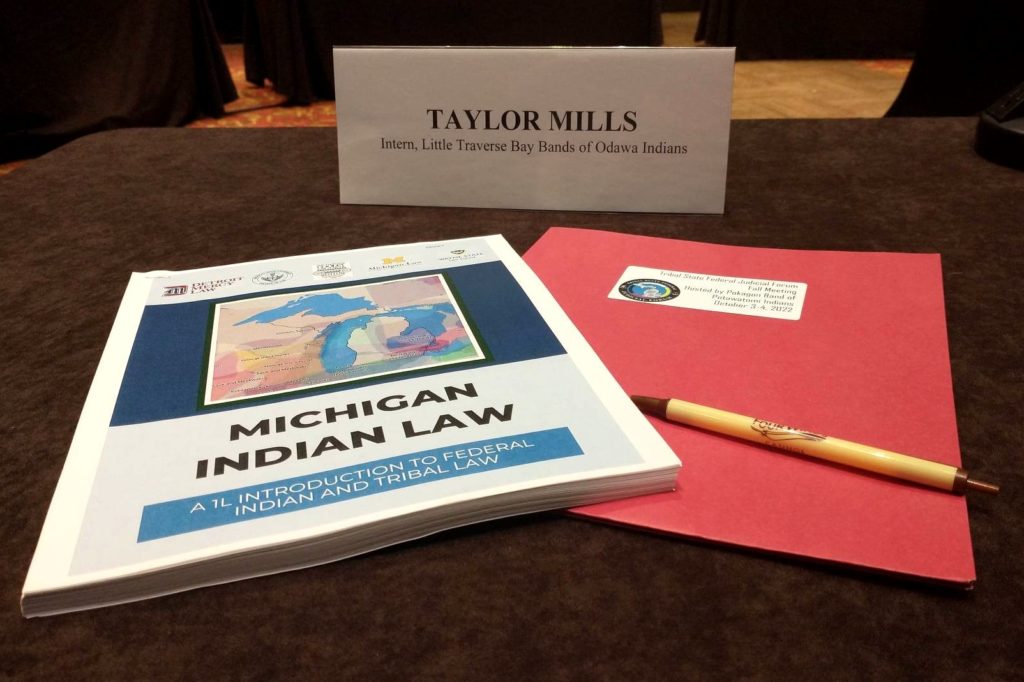
“I thought this was a fantastic idea, but I was also worried about the reactions of faculty. They would either be reticent to the idea, or they might just tack the cases onto their syllabi without taking the time and care to properly introduce the cases,” Mills said. “I expressed these concerns and worked to develop a handbook that alleviates the burden on faculty to do the proper foundational work to introduce Tribal cases while ensuring that the cases are presented well to students. The goal was to address an issue of DEI (diversity, equity, and inclusion) in the classroom without tokenizing Tribal laws nor putting the burden solely on the shoulders of faculty.”
“The goal was to address an issue of DEI (diversity, equity, and inclusion) in the classroom without tokenizing Tribal laws nor putting the burden solely on the shoulders of faculty.”
Mills collaborated with Judge Greenleaf Maldonado and Justice Megan Cavanagh of the Michigan Supreme Court on the project. Together, their research identified Tribal law that students need to know and how to develop a pedagogical approach that incorporates DEI and avoids tokenism.
“Both of these women acknowledged my opinions, listened to my ideas, and indicated that I had pedagogical expertise that complimented their expertise in Tribal law,” Mills said. “The mutual respect, celebration of our talents, and the shared commitment to improving legal education was incredibly rewarding.”
Mills and Judge Greenleaf Maldonado co-presented the project at the Michigan Tribal State Federal Judicial Forum’s Education Committee annual meeting and solicited feedback.
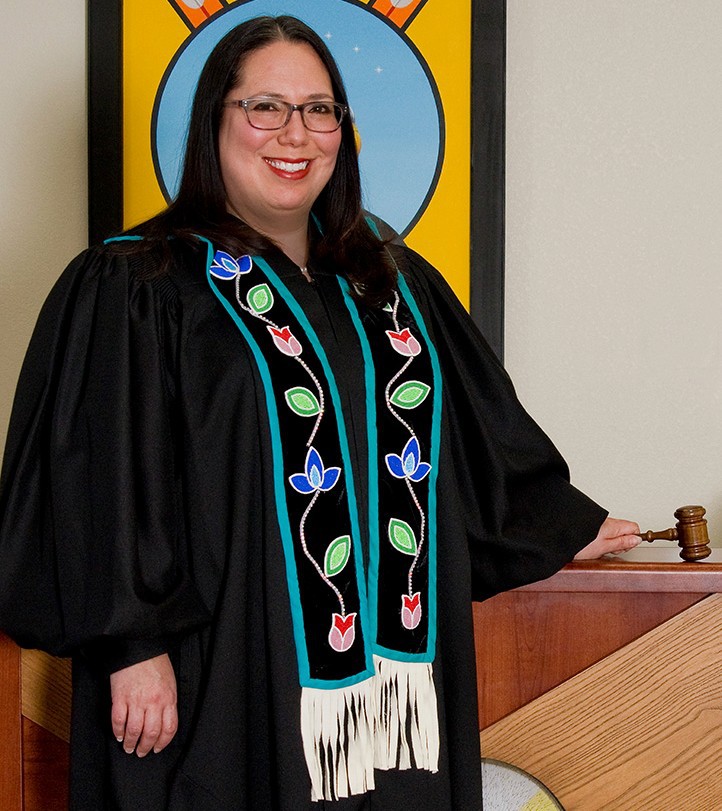
The handbook, which is now completed, includes a one-page introductory narrative for each of the 12 federally recognized Tribes in Michigan because learning a Tribe’s laws requires knowing more about the Tribe itself. Also included are Tribal cases that correspond with key concepts in a first-year law school curriculum, with short summaries added before the cases that highlight the main ideas.
Mills selected the cases with three goals in mind:
- To include as many of the 12 Tribes’ case laws as possible.
- The case needed to correspond with a topic covered in the first-year law curriculum.
- To find cases where the Tribes used their laws instead of federal or state laws.
Tribes are sovereign governments where they do not have to follow most federal and state laws, though they can choose to do so. However, legal practitioners often use federal laws in their arguments submitted to Tribal courts where they have no weight. The handbook aims to shed light on this fact through case illustrations and by showing where to look for proper authorities when encountering similar cases.
“I selected cases that demonstrate how Tribal laws differ and overlap with federal and state approaches to legal issues, mainly so that when practitioners encounter cases involving Tribal law, they know to look to the correct legal authorities and do their homework,” Mills said.
“I hope this handbook highlights those necessary skills and offers a helpful starting point for practitioners to educate themselves further as they advance in their careers.”
Mills also included resources for anyone interested in learning more about Tribal or Federal Indian Law, as well as several pages explaining what trauma-informed pedagogy is, why it is important in this context, and strategies faculty should use to ensure their classrooms are safe and welcoming, especially for Native students when discussing Tribal laws.
“I hope this handbook highlights those necessary skills and offers a helpful starting point for practitioners to educate themselves further as they advance in their careers,” Mills said. “I also hope the handbook’s beginning, with introductions to the Tribes, serves as a way for building stronger relationships between Tribes and institutions of legal education. In terms of demarginalizing Tribal communities in legal education, my hope is that by connecting the Tribal cases to a standard first-year curriculum, the ‘othering’ stigma surrounding Tribal law will diminish. I also hope that by providing more than just a list of cases — Tribal introductions, trauma informed pedagogy, synopses, etc. — the handbook avoids the potential tokenism that often happens in educational diversity efforts.”
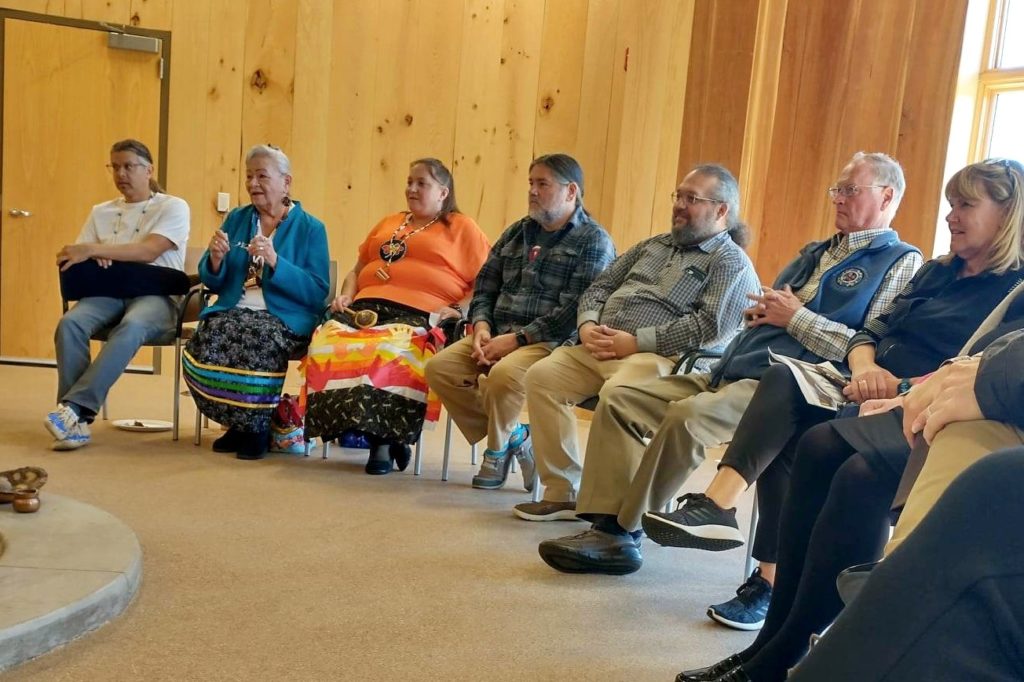
Mills is grateful to all those who have helped her along the way.
“I want to thank Dr. Michael O’Rourke in the Philosophy Department who runs the EPIP (Engaged Philosophy Internship Program) that enabled me to do this work, and to Wenona Singel, Esq., member of the LTBB, Professor, and the one who suggested working with the LTBB,” Mills said. “I also want to thank my other Ph.D. committee members, Dr. Elena Ruiz, Dr. Nora Berenstain, and Pr. Heather Johnson, as well as my family for their ongoing support. My parents were my first teachers, and I can confidently say I would not have the pedagogical skills I have now without them!”
During the 2023-2024 academic year, Mills was selected for MSU’s Urban Community Engagement Fellows Program (UCEF), a joint initiative of Michigan State University’s Graduate School and the Office of University Outreach and Engagement. UCEF pairs a diverse team of MSU graduate students with Lansing-area community partners to envision and complete community-identified projects that make a substantive difference in revitalizing the city.
Mills also is a 2023 recipient of the Woman Lawyers of Michigan Foundation Award for Outstanding Female Law Student as well as the American Bar Association’s LGBT Public Interest Scholarship.
Mills passed the bar exam in July 2023 and will be sworn in as an attorney by Judge Allie Greenleaf Maldonado with sponsorship from MSU College of Law graduate Sarah Yore-Van Oosterhout, the founder and managing attorney of Lighthouse Immigrant Advocates.
